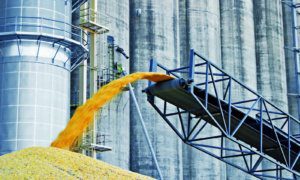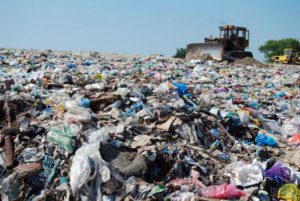
Risoil S.A. increased grain transshipment by 20,000 tonnes of grain per day, to 1.64 million tonnes, in the 2017/2018 marketing year (July 2017 through June 2018).
“Risoil increased oil transshipment by 11% as compared to last season. As for grain and products of processing, the results stably exceeded planned 1.5 million tonnes. The group transshipped 1.62 million tonnes of grain plus products of processing in the 2016/2017 season and 1.64 million tonnes in the 2017/2018 MY,” the group said in a post on its Facebook page.
Risoil S.A. was established in Geneva (Switzerland) in 2000. Its core business is logistics of oil, bulk and general cargo in the ports of the Black Sea, sale and production of vegetable oils, trade in grain and oilseeds in containers, storage and processing of agro-industrial products.
Risoil Terminal in Chornomorsk seaport was commissioned in 2016.

Some 4.6% of foreign direct investment (FDI) companies in Ukraine produce 34.9% of gross value added (GVA), according to a survey conducted by the German Advisory Group and Ukraine’s Institute for Economic Research and Policy Consulting. “Some 4.6% of FDI companies in the non-financial sector employ 20.4% of salaried employees and produce 34.9% of GVA,” expert of the German Advisory Group Ukraine David Saha said while presenting the survey during a press conference hosted by the Interfax-Ukraine News Agency on July 12, 2018.
He added that the average monthly labor costs per employee of FDI companies were 57% higher than that of domestically owned enterprises.
“With the help of the IMF methodology we evaluated the amount of foreign investment in Ukraine at $27.5 billion in 2016. This is $650 per Ukrainian individual, while in Belarus this index is $2,000 and in Estonia – $14,000,” he said.
In turn, Acting Finance Minister of Ukraine Oksana Markarova noted that the government expected intensification of foreign investment due to privatization as well as improvement of business climate for both foreign and Ukrainian companies.
“We’ve managed to return Ukraine to the investment map over the recent year and a half. Numerous global brands, which earlier were just scrutinizing Ukraine, either have entered Ukraine, like Fujikura or a cluster of German companies in western Ukraine, or have announced about their plans to enter the Ukrainian market,” Markarova said.

The production of milk in Ukraine (excluding the temporarily occupied Crimea and Sevastopol, part of Donbas) in January-June 2018 declined by 1.8% compared to the same period in 2017, to 4.955 million tonnes. At the same time, egg production in the first six months grew by 2.8% compared to the same period in 2017, to 8.187 billion eggs, the State Statistics Service of Ukraine said.
Production of meat (in live weight) in January-June 2018 fell by 0.6%, to 1.551 million tonnes.
According to earlier statistics reports, milk production in Ukraine in 2017 decreased by 0.5% from 2016, to 10.329 million tonnes, meat (in live weight) by 0.4%, to 3.259 million tonnes. Production of eggs in 2017 rose by 3.2%, to 15.578 billion eggs.

Twelve companies from eleven countries have submitted bids for the construction of a waste recycling plant in Lviv, the press service of Lviv City Council said with reference to Lviv Mayor Andriy Sadovy. “These companies have the most extensive experience in the construction of waste recycling facilities in Europe and around the world. The commission will study each company’s background and the next stage is to select one of the companies,” the press service quoted Sadovy as saying.
According to the report, the examination of documents for the compliance with the qualification requirements will take 30 days after which a list of the companies admitted to the next stage of the tender will be made public.
The following companies submitted bids for the tender: Eggersmann Anlagenbau GmbH (Germany), Control Process S.A. (Poland), СМЕС (China Machinery Engineering Corporation, PRC); Ceres Group SAS (France), ECONOVA (JSC ECONOVA, Poland), HELECTOR S. A (Greece), M-U-T (Austria), JV EFACEC-TAHAL (Israel), Atzwanger AG (Italy), Axis-Waste Treatment Technologies (the Netherlands), RIKO, industrijski, gradbeni inženiring in leasing, d.o.o. (Slovenia), and 3B Hungaria (Hungary).
According to the tender requirements, the construction of the waste recycling plant with the capacity of 240,000 tonnes of garbage per year should take 24 months. After the launch, the winner of the tender will service the facility and train local specialists for a year.
On June 1, 2018, Lviv City Council and the European Bank for Reconstruction and Development (EBRD) signed an agreement on the issue EUR 35 million for the construction of the waste recycling plant and the rehabilitation of the Hrybovychi solid household waste landfill.
AUSTRIA, CONSTRUCTION, FRANCE, GERMANY, GREECE, ISRAEL, LVIV, POLAND, WASTE RECYCLING PLANT